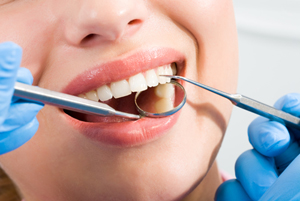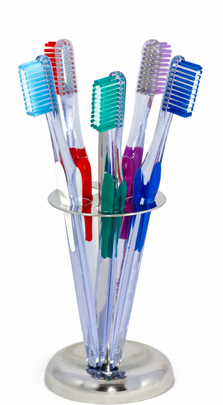
- Standard Session. You will pay our standard session rate if you are a regular attender, do not suffer from any kind of periodontal disease and do not need an anaesthetic
- Special Session. You will pay our special session rate if you have periodontal disease (i.e. gingivitis or periodontitis) and/or need an anaesthetic before treatment or if you are a new direct access patient and have not had a prior checkup at the practice

- Brush your teeth twice daily for at least two minutes each time. Use a soft or medium brush and do not apply undue pressure.
- Make sure that you clean the spaces between your teeth. There are a number of ways of doing this including floss, interdental brushes and electric water/air flossers - all have their advantages and disadvantages so use the one which suits you best.
- Do not brush your teeth straight after drinking fizzy drinks or fruit juices. These drinks can cause the enamel of your teeth to soften and immediate brushing can accelerate the loss of tooth structure. Instead, rinse your mouth with water and wait at least 60 minutes before brushing.
- Replace your toothbrush (or, if you use an electric brush, the head) every two months to avoid bacteria build up which can then be transferred to your mouth.
- If you notice bleeding, unpleasant tastes or odours, or wobbly teeth, then you may have periodontitis or gum disease - see a dentist immediately for treatment.





